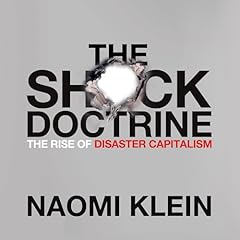
Cloudmoney
Cash, Cards, Crypto, and the War for Our Wallets
No se pudo agregar al carrito
Add to Cart failed.
Error al Agregar a Lista de Deseos.
Error al eliminar de la lista de deseos.
Error al añadir a tu biblioteca
Error al seguir el podcast
Error al dejar de seguir el podcast
Obtén 3 meses por US$0.99 al mes
 Exclusivo para miembros Prime: ¿Nuevo en Audible? Obtén 2 audiolibros gratis con tu prueba.
Exclusivo para miembros Prime: ¿Nuevo en Audible? Obtén 2 audiolibros gratis con tu prueba.
Compra ahora por $25.19
-
Narrado por:
-
Coleman Pedigo
-
De:
-
Brett Scott
The reach of Corporations into our lives via cards and apps has never been greater; many of us rarely use cash these days. But what we’re told is a natural and inevitable move is actually the work of powerful interests. And the great battle of our time is the battle for ownership of the digital footprints that make up our lives.
In Cloudmoney, Brett Scott tells an urgent and revelatory story about how the fusion of Big Finance and Big Tech requires “cloudmoney”—digital money underpinned by the banking sector—to replace physical cash. He dives beneath the surface of the global financial system to uncover a long-established lobbying infrastructure: an alliance of partners waging a covert war on cash. He explains the technical, political, and cultural differences between our various forms of money and shows how the cash system has been under attack for decades, as banking and tech companies promote a cashless society under the banner of progress.
Cloudmoney takes us to the front lines of a war for our wallets that is also about our freedom, from marketing strategies against cash to the weaponization of COVID-19 to push fintech platforms, and from there to the rise of the cryptocurrency rebels and fringe groups pushing back. It asks the most pressing questions:
Who benefits from a cashless society and who gets left behind?
Is the end of cash the end of true privacy?
And is our cloudmoney future closer than we think it is?
Supplemental enhancement PDF accompanies the audiobook.
Los oyentes también disfrutaron:




















A must listen
Se ha producido un error. Vuelve a intentarlo dentro de unos minutos.
A quick glance at digital money, its institutions and implications in our modern world, very good for newbies
Se ha producido un error. Vuelve a intentarlo dentro de unos minutos.
wow!
Se ha producido un error. Vuelve a intentarlo dentro de unos minutos.
Well presented and balanced review of global financial networks
Se ha producido un error. Vuelve a intentarlo dentro de unos minutos.
Entertaining and educational
Se ha producido un error. Vuelve a intentarlo dentro de unos minutos.


